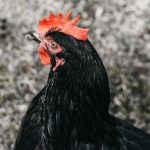Cold weather can have a significant impact on egg production in hens. When temperatures drop, hens tend to reduce their egg-laying frequency or stop laying altogether. This is because hens require a certain level of warmth to maintain their reproductive functions. In cold weather, hens may also experience stress, which can further reduce their egg production. Additionally, the shorter daylight hours in winter can also affect egg production, as hens require a certain amount of light to stimulate egg-laying.
Furthermore, cold weather can also affect the quality of eggs produced. When hens are exposed to cold temperatures, the quality of their eggs may decrease, with thinner shells and lower yolk quality being common issues. It is important for poultry farmers to understand the impact of cold weather on egg production in order to implement strategies to mitigate these effects and ensure a consistent supply of high-quality eggs throughout the winter months.
Table of Contents
- 1 Providing Proper Nutrition and Hydration for Hens in Winter
- 2 Creating a Cozy and Insulated Coop Environment
- 3 Implementing Lighting Strategies to Stimulate Egg Production
- 4 Managing Stress and Health Challenges in Cold Weather
- 5 Utilizing Warmth and Heat Sources for Hens
- 6 Monitoring and Adjusting Egg Production Strategies for Winter
Providing Proper Nutrition and Hydration for Hens in Winter
Proper nutrition and hydration are essential for maintaining egg production in hens during the winter months. In cold weather, hens require additional energy to maintain their body temperature, so it is important to provide them with a well-balanced diet that is high in protein and fat. This will help to ensure that hens have the necessary nutrients to support egg production during the colder months. Additionally, it is important to provide hens with access to fresh, clean water at all times, as dehydration can have a negative impact on egg production.
In addition to a nutritious diet and access to water, it is also important to provide hens with supplemental heat sources, such as heated waterers, to prevent their water from freezing. This will help to ensure that hens remain properly hydrated throughout the winter. By providing proper nutrition and hydration for hens in winter, poultry farmers can help to support consistent egg production and maintain the health and well-being of their flock during the colder months.
Creating a Cozy and Insulated Coop Environment
Creating a cozy and insulated coop environment is essential for maintaining egg production in hens during the winter months. Insulating the coop can help to retain heat and keep hens warm, even in cold temperatures. This can be achieved by adding insulation to the walls and ceiling of the coop, as well as sealing any drafts or gaps that may allow cold air to enter. Additionally, providing hens with plenty of bedding, such as straw or wood shavings, can help to keep them warm and comfortable during the winter.
It is also important to ensure that the coop is well-ventilated, as poor air quality can have a negative impact on egg production and the overall health of the flock. Proper ventilation will help to remove excess moisture and ammonia from the coop, creating a healthier environment for hens. By creating a cozy and insulated coop environment, poultry farmers can help to ensure that their hens remain warm and comfortable throughout the winter, which can in turn support consistent egg production.
Implementing Lighting Strategies to Stimulate Egg Production
In order to stimulate egg production in hens during the winter months, it is important to implement lighting strategies that mimic natural daylight. As the days grow shorter in winter, hens may experience a decrease in egg-laying frequency due to the reduced amount of light. To counteract this, poultry farmers can use artificial lighting in the coop to extend the hours of daylight for hens. This can help to stimulate their reproductive functions and encourage consistent egg production throughout the winter.
When implementing lighting strategies, it is important to provide hens with a gradual increase in light rather than sudden changes, as this can cause stress and disrupt their natural rhythms. Additionally, it is important to provide hens with a period of darkness each day to allow them to rest and recharge. By implementing lighting strategies to stimulate egg production, poultry farmers can help to support consistent egg-laying in their flock throughout the winter months.
Managing Stress and Health Challenges in Cold Weather
Cold weather can be stressful for hens, which can have a negative impact on their health and egg production. To manage stress and health challenges in cold weather, it is important to provide hens with a comfortable and secure environment that protects them from the elements. This includes ensuring that the coop is well-insulated and free from drafts, as well as providing hens with plenty of bedding and access to fresh water.
Additionally, it is important to monitor the health of hens regularly and address any issues promptly. This includes checking for signs of frostbite or respiratory problems, which are common health challenges in cold weather. By managing stress and health challenges in cold weather, poultry farmers can help to ensure that their hens remain healthy and productive throughout the winter months.
Utilizing Warmth and Heat Sources for Hens
Utilizing warmth and heat sources for hens is essential for maintaining their comfort and well-being during the winter months. This can include providing hens with access to heated waterers to prevent their water from freezing, as well as using heat lamps or heated perches in the coop to keep them warm. Additionally, providing hens with plenty of bedding, such as straw or wood shavings, can help to insulate them from the cold and provide additional warmth.
It is important to ensure that any heat sources used are safe and properly installed to prevent fire hazards or injuries to hens. Additionally, it is important to monitor the temperature in the coop regularly to ensure that it remains within a comfortable range for hens. By utilizing warmth and heat sources for hens, poultry farmers can help to ensure that their flock remains warm and comfortable throughout the winter months, which can support consistent egg production.
Monitoring and Adjusting Egg Production Strategies for Winter
Monitoring and adjusting egg production strategies for winter is essential for maintaining a consistent supply of high-quality eggs throughout the colder months. This includes regularly monitoring the health and behavior of hens, as well as keeping track of their egg-laying frequency and the quality of eggs produced. By doing so, poultry farmers can identify any issues or challenges that may be affecting egg production and make adjustments as needed.
Additionally, it is important to be flexible with egg production strategies in winter, as hens may require different care and management during this time. This may include adjusting lighting schedules, providing additional warmth or insulation in the coop, or making changes to their diet or hydration needs. By monitoring and adjusting egg production strategies for winter, poultry farmers can help to ensure that their flock remains healthy and productive throughout the colder months.
In conclusion, cold weather can have a significant impact on egg production in hens, but by understanding these effects and implementing appropriate strategies, poultry farmers can support consistent egg-laying throughout the winter months. This includes providing proper nutrition and hydration for hens, creating a cozy and insulated coop environment, implementing lighting strategies to stimulate egg production, managing stress and health challenges, utilizing warmth and heat sources, and monitoring and adjusting egg production strategies as needed. By doing so, poultry farmers can help to ensure that their flock remains healthy and productive even in the coldest of temperatures.
Meet Walter, the feathered-friend fanatic of Florida! Nestled in the sunshine state, Walter struts through life with his feathered companions, clucking his way to happiness. With a coop that’s fancier than a five-star hotel, he’s the Don Juan of the chicken world. When he’s not teaching his hens to do the cha-cha, you’ll find him in a heated debate with his prized rooster, Sir Clucks-a-Lot. Walter’s poultry passion is no yolk; he’s the sunny-side-up guy you never knew you needed in your flock of friends!







